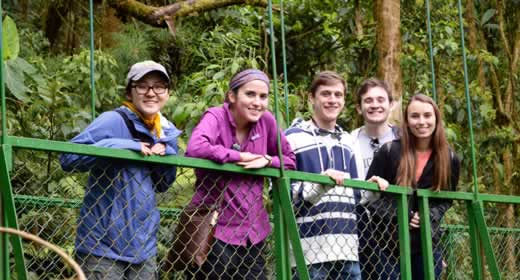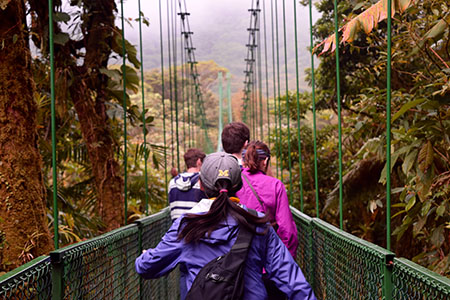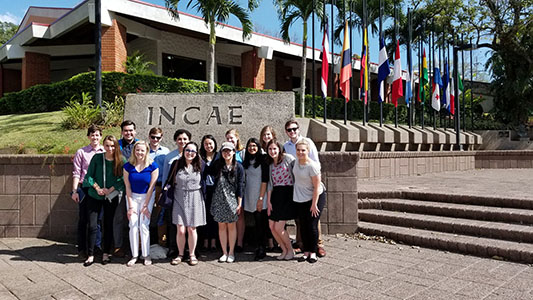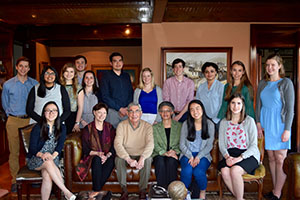
“Everything we did was informative and educational. I felt privileged to meet with the people [we did.] I also appreciated the time allotted for debrief and discussion (much of this was on the bus), [and] firsthand experiences of policy project areas.”
This winter, we offered a groundbreaking new international opportunity to our BA students: a seminar punctuated by a study trip to Costa Rica.
- The new course and study tour were designed to expose Ford School undergraduates to important policy questions addressed by other countries and challenge them to think outside the framework of U.S. policy.
- In the classroom, students immersed themselves in the history, economics, and political structures of Costa Rica. They worked intensely on policy projects that were organized around three broad areas: eco-tourism, forest management, and immigration—synthesizing the policy issues and preparing questions for experts they would later meet in country.
- Then on February 24, as many of their U-M peers hit the beaches, PubPol 480 students departed for Costa Rica to spend their Winter Break learning and engaging with policy stakeholders.

Students spent two days in the cloud forest of Monteverde investigating eco-tourism, forestry and immigration policies at local businesses. Next, they brought their findings to the capital city of San José to broaden their perspective with visits to NGOs, government agencies, business, and non-profit organizations.
“The hard work the students did on the front end enabled them to ask informed questions and engage Costa Rican leaders about different aspects of the three policy issues the course covered. Because students had steeped themselves in the issues during the preparatory phase, they were poised to recognize and assimilate relevant information even when it popped up in unexpected places. It was a very rich experience.”
—Susan Waltz, professor of public policy, scholar and practitioner in the field of international human rights

The students spent half a day participating in a policy simulation at INCAE, arranged through Professor Alberto Trejos, formerly a Ford School Towsley Policymaker in Residence.
To explore the full impact of immigration policies, the group engaged with the migrant community of El Triángulo, north of San José. They were led by Really Experience Community, a non-profit that promotes local development and cross-cultural understanding.
“I absolutely loved the itinerary in Costa Rica—especially how diverse the experiences were. I think it was a great mix of culture and interactions with government stakeholders.”

The students visited the home of former president of Costa Rica and Nobel Peace Prize laureate Óscar Arias, who had worked with Susan Waltz for many years on the International Arms Trade Treaty.
A visit to a coffee farm in Monteverde presented opportunities for students to inquire about immigrant labor as well as forest protection policies and eco-educational tourism.
The trip itself was co-led by Professor Susan M. Collins. The seminar was conceived and launched under Collins’ leadership as dean of the Ford School, and she’ll teach the course next year, taking a new group of undergraduates through this immersive educational experience.
“This course was made possible by a generous donation from Regent Ron Weiser and the Weiser Family Foundation. In addition, the gift enhances resources for the International Economic Development Program and China Policy Course, establishes IPC Awards for students pursuing international internships and research, and helps IPC fund student-led initiatives. Our students are more equipped than ever before to practice engagement with policy stakeholders in a global context.”
—Cliff Martin, global engagement program manager, International Policy Center (IPC)
Below is a formatted version of this article from State & Hill, the magazine of the Ford School. View the entire Spring 2018 State & Hill.
More news from the Ford School